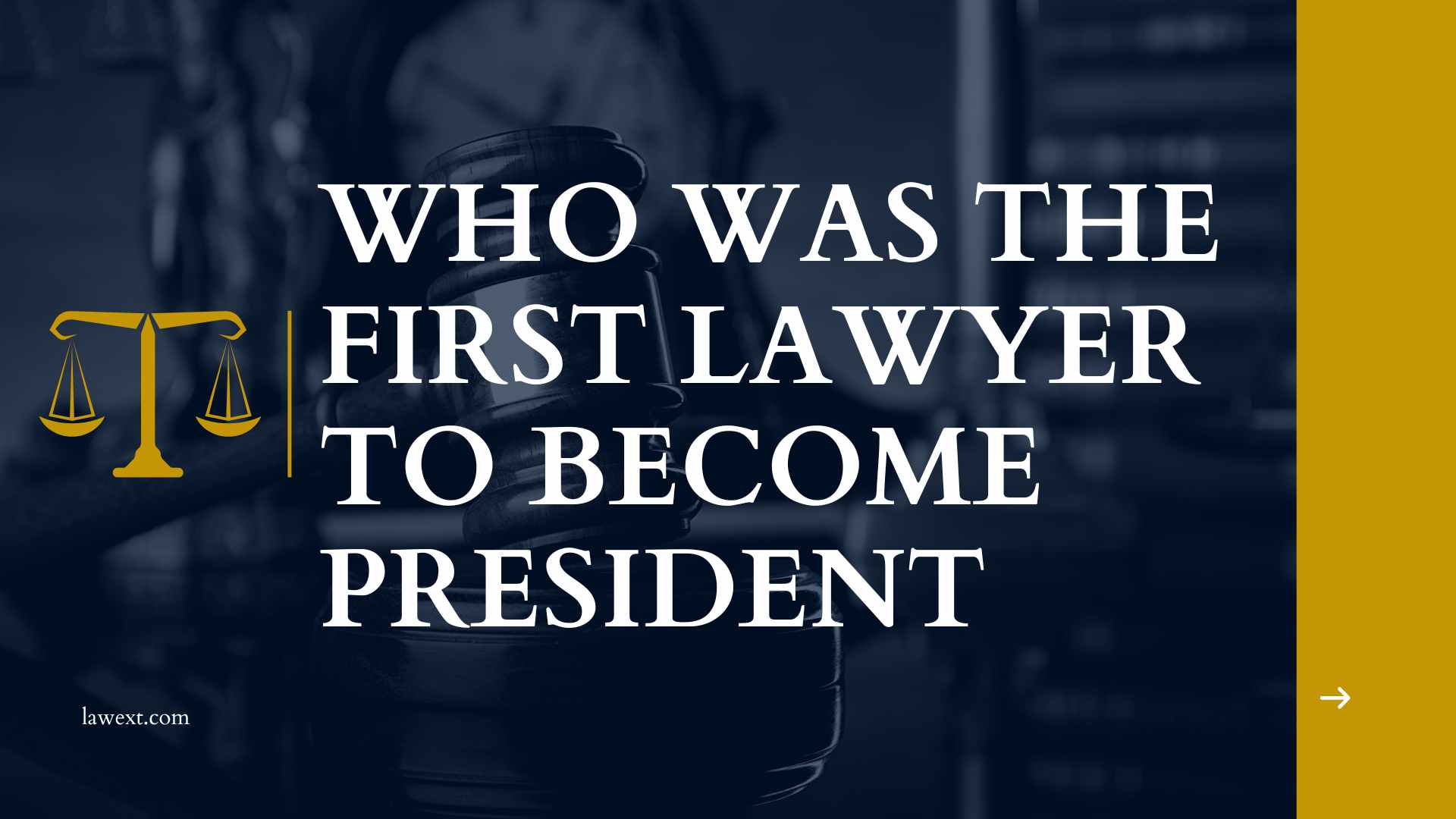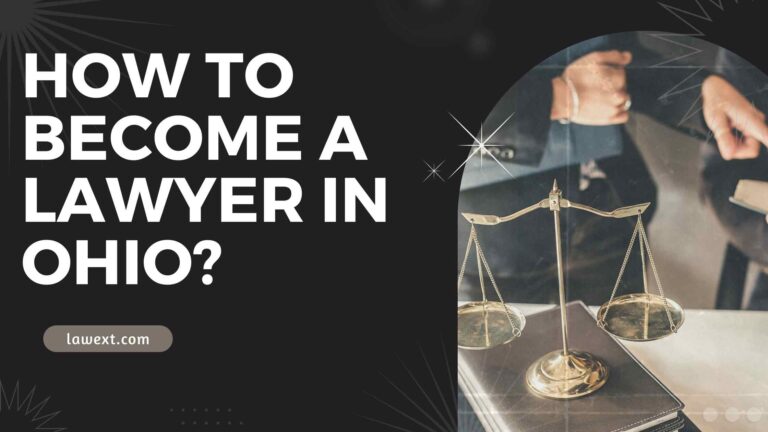Who was the First Lawyer to Become President

The first lawyer to become president of the United States was John Adams. He served as the second president of the country from 1797 to 1801.
Table of Contents
John Adams, the second president of the United States, holds the distinction of being the first lawyer to ascend to the highest office in the land. Serving from 1797 to 1801, Adams, a renowned attorney, brought a unique perspective to the presidency through his legal background.
His expertise in law and extensive legal career provided a solid foundation for his political leadership, shaping and influencing his approach to governance. This article will delve into the life and accomplishments of John Adams, shedding light on his legal career and the impact it had on his presidency.
Early Lawyers In American Politics
Throughout the history of the United States, lawyers have played a significant role in shaping the country’s political landscape. From drafting and interpreting laws to advocating for justice in courtrooms, lawyers have had a profound impact on American governance. In this section, we will explore the early influences on American law and the emergence of lawyers in colonial America and the Revolutionary Era.
Early Influences On American Law
American law has been heavily influenced by various legal traditions, including English common law and classical Roman law. The principles and legal theories established by these traditions laid the foundation for the development of the American legal system.
During the colonial era, legal education in America was limited, and aspiring lawyers often pursued an informal apprenticeship system. These apprenticeships allowed them to study law under the guidance of experienced attorneys while gaining practical experience in legal matters.
Lawyers In Colonial America
In colonial America, lawyers played a crucial role in representing colonists’ interests and advocating for their legal rights. They were responsible for handling various legal issues, including property disputes, criminal cases, and contractual matters.
The first recorded lawyer in colonial America was Thomas Ludwell Lee, who immigrated to Virginia in the late 17th century. Lee’s legal expertise helped him gain prominence in the colonial government, and he went on to serve as a member of the Virginia House of Burgesses.
As the colonies grew, so did the need for legal representation. Many lawyers, such as John Adams in Massachusetts and Alexander Hamilton in New York, emerged as influential figures in the fight for independence and the establishment of a new nation.
Lawyers In The Revolutionary Era
The Revolutionary Era marked a critical turning point for lawyers in American politics. As the nation sought to break free from British rule, lawyers played pivotal roles in drafting important documents, such as the Declaration of Independence and the Constitution.
One of the most notable lawyers of the Revolutionary Era was John Adams. As a lawyer, Adams defended British soldiers accused of murder in the Boston Massacre trial. His legal prowess and commitment to justice made him an influential figure in the formation of the new government and ultimately led to his presidency in 1797.
Another influential lawyer of the time was Thomas Jefferson, who played a substantial role in drafting the Declaration of Independence and later served as the third President of the United States. Jefferson’s legal background and knowledge of constitutional law greatly influenced his political career.
The Revolutionary Era transformed the legal profession, with lawyers assuming important positions in government, shaping the new nation’s laws, and paving the way for future lawyers to enter politics.

Credit: www.wflx.com
The First Lawyer To Become President
Who was the First Lawyer to Become President?
John Adams: Founding Father And Lawyer
John Adams, one of the Founding Fathers of the United States, holds the distinction of being the first…
Adams’ Legal Career Before Presidency
Before assuming the presidency, Adams pursued a successful legal career…
Impacts Of Adams’ Legal Background On His Presidency
The influence of Adams’ legal background was evident throughout his presidency…
Lawyers-turned-presidents Throughout History
Throughout history, the United States has seen several lawyers rise to the highest office in the nation. These individuals brought their legal expertise, critical thinking skills, and a deep understanding of the law into their roles as Presidents. From drafting important legislation to navigating complex international relations, lawyers-turned-Presidents have played a pivotal role in shaping the nation. Let’s explore the lives and legacies of some notable lawyers who became President:
Thomas Jefferson: A Lawyer And Statesman
Thomas Jefferson, a key figure in the American Revolution and the primary author of the Declaration of Independence, began his career as a lawyer. After obtaining his law degree and serving on the Virginia House of Burgesses, Jefferson went on to contribute greatly to the nation’s legal and political landscape. His legal expertise and statesmanship prowess allowed him to implement significant policies during his presidency, such as the Louisiana Purchase, which doubled the size of the nation.
Abraham Lincoln: From The Legal Profession To The White House
Abraham Lincoln‘s journey to the White House started in the legal profession. As a highly respected lawyer in Illinois, Lincoln honed his skills in courtroom battles and developed a reputation for his persuasive arguments and keen intellect. This foundation served him well during his presidency as he navigated the challenges of the Civil War and fought for the abolition of slavery. Lincoln’s profound understanding of the law and his commitment to justice shaped his transformative leadership.
Woodrow Wilson: Lawyer, Scholar, And President
Woodrow Wilson, a distinguished scholar and lawyer, brought a unique perspective to the presidency. Before assuming office, Wilson had served as the President of Princeton University and Governor of New Jersey. His legal training and scholarly background enabled him to construct and advocate for progressive policies, including the establishment of the Federal Reserve System and the passing of antitrust legislation. Wilson’s sharp legal mind and intellectual acumen made him one of the most influential Presidents of the 20th century.
Franklin D. Roosevelt: Lawyer And Leader In Times Of Crisis
Franklin D. Roosevelt, best known for his leadership during the Great Depression and World War II, was also a lawyer by profession. Before becoming President, Roosevelt practiced law and served as Assistant Secretary of the Navy. During his presidency, he introduced numerous legislative measures, collectively known as the New Deal, to combat economic turmoil and provide relief to millions of Americans. Roosevelt’s legal background and ability to navigate complex legal frameworks were essential to his success in leading the nation through challenging times.
The Influence Of Legal Background On Presidential Leadership
When it comes to presidential leadership, the influence of a legal background cannot be underestimated. History has shown us that several presidents have had successful careers in law before assuming the highest office in the land. These lawyers-turned-presidents brought unique perspectives and skills to their presidential decision-making processes, ultimately shaping public policy in profound ways.
Analyzing The Impact Of Legal Training On Presidential Decision Making
Legal training equips individuals with a set of valuable skills that can greatly impact their decision-making abilities as presidents. Lawyers are trained to analyze complex issues, consider multiple perspectives, and make reasoned judgments based on available evidence. This analytical approach often translates into a careful consideration of the various sides of an issue before making a final decision.
Moreover, legal professionals are adept at identifying potential legal and constitutional pitfalls that may arise from proposed policies or actions. Their expertise in interpreting and applying the law enables them to guide their administrations in a manner that upholds the principles of justice and fairness.
Legal Skills Beneficial For Presidents
Several key legal skills directly benefit presidents in their leadership roles. First and foremost, effective communication is paramount. Lawyers are skilled at presenting arguments, persuading others, and articulating complex ideas in a concise and understandable manner. This ability to communicate effectively with both policymakers and the public helps presidents rally support for their initiatives and gain public trust.
Additionally, legal professionals possess exceptional research and critical thinking abilities, honed through years of legal education and practice. These skills enable presidents to delve deep into the details, assess the potential implications of different courses of action, and make informed choices that are in the best interest of the nation.
The Role Of Lawyers In Shaping Public Policy
Lawyers, both as presidents and as legal advisors, have played a significant role in shaping public policy throughout history. Their knowledge of the law allows them to craft policies that align with legal frameworks, ensuring their actions are both effective and lawful. Lawyers also possess a keen understanding of the legal implications of policy decisions, helping to guide administrations in avoiding potential conflicts and litigations.
Beyond policy formation, lawyers serve as advocates for equal justice and the rule of law. They champion human rights, civil liberties, and provide legal safeguards that protect individuals and institutions. Their legal backgrounds enable them to appreciate the balance between individual rights and the collective needs of society, resulting in a more informed and fair approach to policy-making.
The Future Of Lawyer-presidents
Recent Lawyers In Presidential Politics
Barack Obama was the first lawyer to become President of the United States in 2009. Throughout history, lawyers have continued to play a prominent role in presidential campaigns, with candidates like Hillary Clinton and Mitt Romney being notable examples. This trend raises intriguing questions about the future of lawyer-presidents and the impact they could have on the political landscape.
Challenges And Opportunities For Lawyer-presidents
As lawyer presidents take the reins of power, they must navigate a complex landscape of challenges and opportunities. One of the key challenges is balancing legal expertise with the demands of leadership while seizing the opportunity to leverage their understanding of the law to drive effective policy-making and decision-making.
Prospects For Future Lawyer-presidents
The prospects for future lawyer presidents are both promising and uncertain. As legal expertise becomes increasingly valuable in the political arena, there is potential for more lawyers to aspire to the presidency. However, the evolving nature of political dynamics could present new obstacles for lawyer-presidents to navigate, making it essential for aspiring candidates to adapt and innovate in their approach to leadership.
Credit: www.scbar.org

Credit: twitter.com
Conclusion
In closing, the first lawyer to become president was John Adams. His legal background influenced his presidency, highlighting the important role of law in governance. This historical fact sheds light on the connection between law and leadership in the United States.
Understanding this dynamic enriches our appreciation of the nation’s history.
Introducing Jonah Plum, a legal luminary whose journey through the corridors of justice has been intertwined with the eloquence of the written word. Born and raised in the vibrant city of Seattle, Washington, Jonah's early fascination with language and debate laid the foundation for a remarkable career in law.
Jonah's scholarly odyssey began at Harvard Law School, where they immersed themselves in the study of jurisprudence, honing their analytical prowess and legal acumen. Armed with a law degree, they entered the legal arena, navigating courtrooms and boardrooms with a fervor for justice. Yet, it was the realization of the transformative power of the written word that led Jonah to pivot from legal briefs to the world of blogging.
A digital advocate in the truest sense, Jonah recognized the need for demystifying legal concepts and making them accessible to a broader audience. This blog, a virtual repository of legal insights, transcends geographical boundaries, connecting with a global readership hungry for clarity amidst legal complexities.
Beyond the black letter of the law, Jonah delves into the human stories that underscore the legal landscape. Their writing goes beyond legal analysis, weaving narratives that humanize the law, shedding light on its impact on individuals and society.






